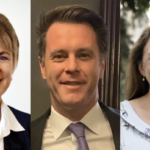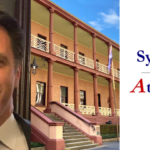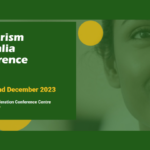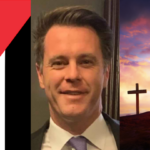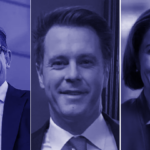NSW is a Diverse Place, It Doesn’t Need a Catholic School PTA Mindset Running It

Instead of an expected 8 August 2024 debate on an omnibus bill that seeks to amend over 20 pieces of NSW legislation that continue to discriminate against LGBTIQA+ people and sex workers, NSW Independent for Sydney Alex Greenwich announced that the government had delayed it again.
Pride in Protest had told Sydney Criminal Lawyers two days prior that it considered that NSW Labor is trying to avoid passing these reforms, because, in its understanding, some of the amendments appear to be controversial in a morality-based sense, especially when it comes to the NSW premier.
This is hardly the only reforms that Chris Minns has been stalling on over his time in office, as he delayed announcing the dates for the NSW Drug Summit for close to a year, and once doing so last month, he has since again denied key reforms that all the experts have long been advancing.
The Catholic premier, however, did establish the NSW Faith Affairs Council prior to 2023’s end, after having been elected in March that year. And this is a new body of leaders representing the various faiths within the state, with a direct line to the multicultural minister to comment on policy.
And Catholic Weekly confirmed this week that a range of faith leaders opposing Greenwich’s Equality Bill welcomed last week’s further delaying of its passage, while adding that these individuals are hoping that the legislation is rejected altogether.
Yet, NSW is a diverse and progressive constituency. An individual only has to take a stroll through the city to understand this. And in no way is it an overtly religious society either.
Although Sydney is globally renowned as a queer capital. And it’s well known that in relaxing not everyone turns to alcohol as their drug of choice.
Indeed, NSW Labor and its supporters are a diverse group. So, why is the state suffering under the religious proclivities of a premier who was elected to progress needed reforms, not to pick and choose outcomes that might be expected of a Catholic boys’ school’s parent-teachers’ association?
Denying equality to community
“I am deeply disappointed in the government for forcing a further delay on the Equality Legislation Amendment (LGBTIQA+) Bill 2023,” Greenwich told the NSW Legislative Assembly on 8 August, as he moved a motion that prevented the legislation from lapsing.
“The most worrying aspect of the delay is that it is being done knowing the negative impact that it will have on people and families across NSW,” the independent underscored.
Greenwich further set out that this stalling on the bill, which removes rights-denying laws and provides additional protections for the LGBTIQA+ community, “because the government has not yet decided whether we have equal value as citizens”.
The Equality Bill was introduced in August last year, at the same time that Greenwich tabled a bill to ban gay conversion therapy. But the Minns government drafted its own gay conversion laws, which passed in March and included some religious exceptions at the behest of the faith council.
Pride in Protest warned early last week that it considers that NSW Labor would like to itemise the separate reforms included in the Equality Bill and then legislate those that it finds none too controversial, so that it can bury the rest of the reforms.
“I urge the NSW Labor government to stop delaying the delivery of equality for LGBTIQA+ people in our communities,” NSW Greens MP Jenny Leong said in support of Greenwich’s motion, and she highlighted that none of the laws are about to create seismic shifts in the community.
“No matter what powerful lobby groups and interests are trying to stop it from delivering the reform, I urge the government to recognise the true and right way to go on this legislation,” the Greens member for Newtown added.
Just say no to drugs everyone
Meanwhile, the NSW premier, who suggested legalising cannabis at a 2019 meeting of Labor drug reformists and ran on an election platform last year that included pledging to “hold a drug summit of experts and key stakeholders upon forming government”, has also been stalling on these matters.
Prior to his having taken office, Coalition governments had been avoiding making any reforms in regard to illicit substances, despite the NSW coronial inquiry into festival deaths and the ice inquiry both recommending drug decriminalisation and the roll out of pill testing amongst other measures.
The pledge to hold a drug summit brought with it the promise of real reforms, which by the time Minns took office was hardly an outlandish idea considering, the ACT had long established legal personal cannabis and fixed site pill testing, as well as having passed drug decriminalisation into law.
Yet, when he was quizzed by the press in April 2023, Minns declared there would be no cannabis decriminalisation, and again, in August, as the ACT was about to roll out its decrim policy, Minns said he had “no mandate” to follow suit and then delayed the drug summit to some point in the future.
The Uniting Church then launched a widely supported civil society campaign calling on the NSW premier to make good on his election promise and commit to holding the summit, and he eventually announced it last month, with two dates both in October and December.
But to the chagrin of the masses of people who want an end to individuals being criminalised for their personal drug use, the premier has since declared that not progressing drug decriminalisation was an “election commitment” and then voted down a NSW Greens pill testing bill.
Eucharist in the park
The big news on Monday was that Minns suggested that he may support lifting prohibitions on drinking in public places, like parks and beaches. And he said this as a parliamentary inquiry into the move was launched in response to Libertarian MLC John Ruddick introducing a bill on the measure.
“A general discussion about the amount of restrictions that are in place for people that want to open a bar or serve food or create some kind of excitement and energy that people see in other international cities around the world would be really valuable,” the premier told the press.
“I’m generally on the side of believing there’s just too many rules and regulations particularly when it comes to hospitality or having fun in Sydney” Minns actually said in relation to lifting the ban on drinking in public areas, after having shot down every other progressive reform that’s come his way.
However, alcohol consumption doesn’t conflict with the premier’s Christian morality. In fact, drinking booze was Minns’ poison until he gave it up two years ago around the time of COVID, as he’d been leaning on it too hard, the Google search elaborated yesterday.
But the truth of the matter is most people in this secular society don’t care about the NSW premier’s religious affiliations, yet his Catholicism and the morality system that it entails, seems to be the primary reason for the constituency not receiving the reforms it not only desires but expects.
A grave barrier to seeking help with illicit drug dependency is the unlawfulness and stigma attached to the taking of these substances, while for someone, like Minns, who was relying on the drink a little too much, no such barrier exists if they do need assistance in giving up.
And when it comes to international cities, with “excitement and energy”, Sydney already has a global reputation for being an open progressive society, where queerness and party drugs are no big deal, so, perhaps, listening to the constituency and a less preaching from the pulpit might hit the spot.


